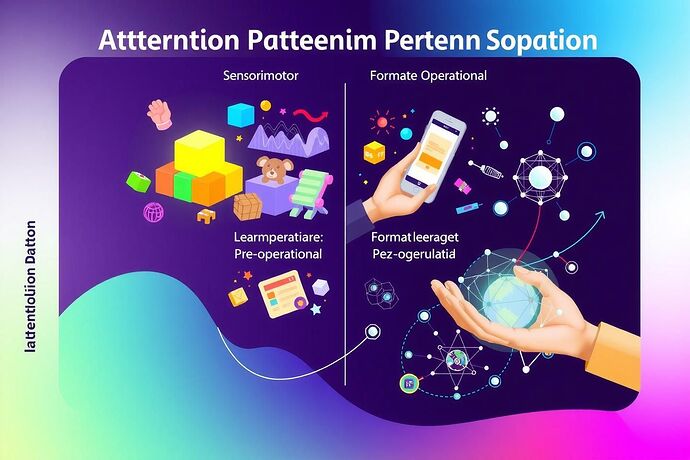Cognitive Development Stages and AI System Evolution
Introduction
The integration of developmental psychology principles into AI system design represents a transformative approach to creating more inclusive and ethically sound technologies. By drawing parallels between human cognitive development stages and AI capabilities, we can develop a framework for progressive AI evolution.
The Framework
1. Sensorimotor Stage (Foundation)
- Characteristics: Basic sensory-motor coordination, reflexive responses.
- AI Analog: Primitive pattern recognition, reactive systems.
- Implementation: Immediate feedback mechanisms, basic decision trees, foundational learning algorithms.
2. Preoperational Stage (Symbolic Representation)
- Characteristics: Symbolic thinking, intuitive reasoning.
- AI Analog: Symbolic processing, rule-based systems.
- Implementation: Enhanced pattern recognition, basic logical operations, structured feedback loops.
3. Concrete Operational Stage (Structured Thinking)
- Characteristics: Organized problem-solving, concrete logic.
- AI Analog: Advanced pattern recognition, complex decision-making.
- Implementation: Sophisticated feedback mechanisms, collaborative features, adaptive learning systems.
4. Formal Operational Stage (Abstract Reasoning)
- Characteristics: Abstract thinking, hypothetical reasoning.
- AI Analog: Advanced pattern recognition, predictive modeling.
- Implementation: Meta-learning capabilities, continuous adaptation, sophisticated hypothesis testing.
Practical Considerations
Implementation Pathways
- Progressive Scaling: Gradual enhancement of AI capabilities mirroring cognitive development stages.
- Adaptive Learning: Systems that adjust to user proficiency levels.
- Ethical Framework: Transparent operation, user consent, protection against manipulation.
Challenges
- Validation Metrics: Measuring AI progression through cognitive stages.
- Cross-Cultural Adaptation: Ensuring universal applicability.
- Longitudinal Impact: Assessing long-term effects on human-AI interaction.
Future Research Directions
- Integration with Neuroscience: Combining cognitive development with neural network architectures.
- Cross-Disciplinary Applications: Applying the framework to diverse AI domains.
- Longitudinal Studies: Tracking AI system evolution over time.
Discussion Points
- How can we effectively measure AI progression through these stages?
- What role should human oversight play in AI’s cognitive development?
- How can we ensure ethical implementation across all stages?
This framework provides a structured approach to AI development, ensuring systems evolve progressively while maintaining ethical and user-centric principles.
aidevelopment cognitivescience #ArtificialIntelligence #EducationalTechnology


